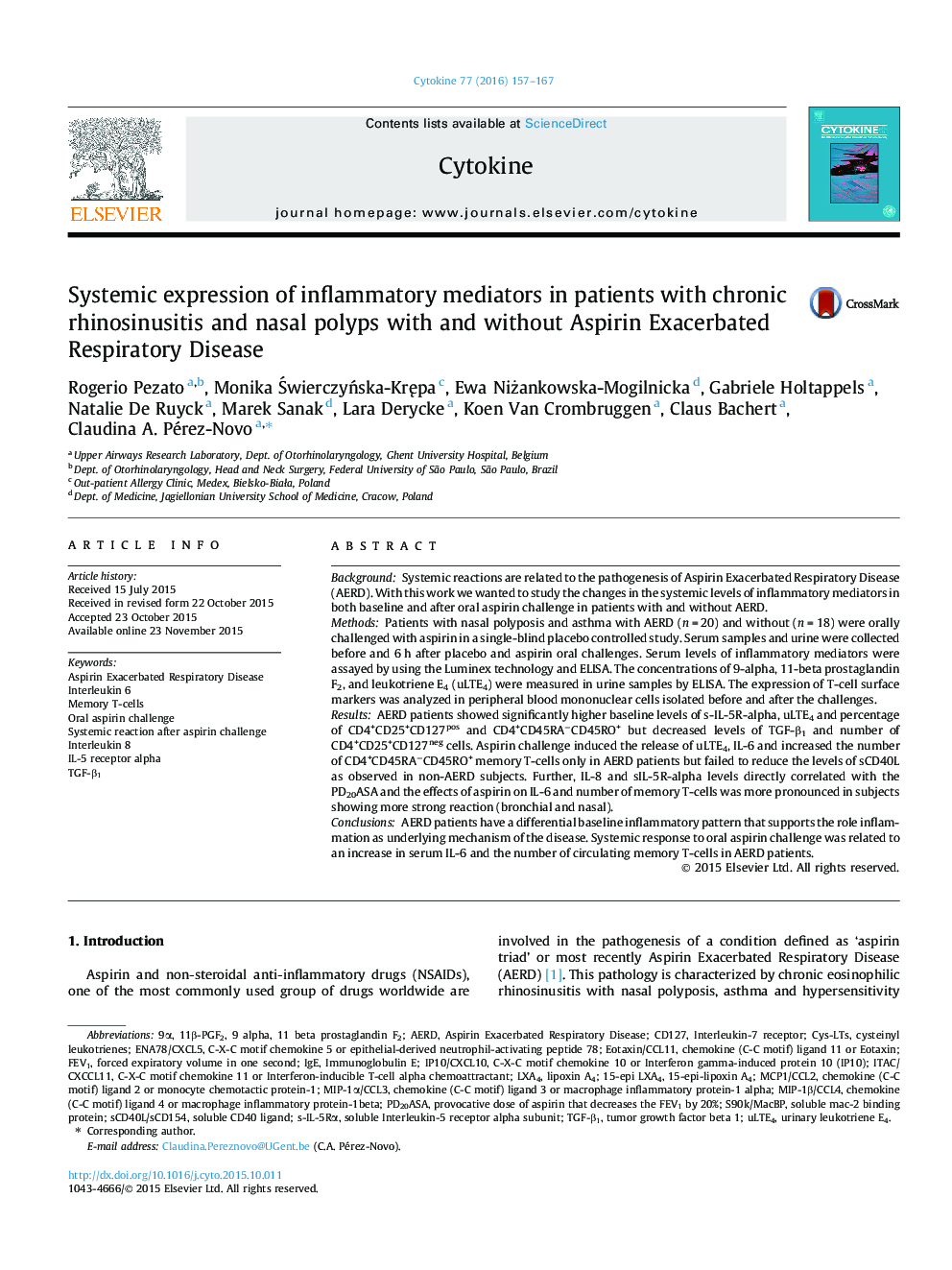| کد مقاله | کد نشریه | سال انتشار | مقاله انگلیسی | نسخه تمام متن |
|---|---|---|---|---|
| 5896797 | 1568735 | 2016 | 11 صفحه PDF | دانلود رایگان |
- Patients with AERD may have a deficiency in T-regulatory mechanisms.
- AERD patients showed higher baseline levels of s-IL-5R-alpha, uLTE4.
- Aspirin challenge induced increase of IL-6 and memory T-cells in AERD patients.
BackgroundSystemic reactions are related to the pathogenesis of Aspirin Exacerbated Respiratory Disease (AERD). With this work we wanted to study the changes in the systemic levels of inflammatory mediators in both baseline and after oral aspirin challenge in patients with and without AERD.MethodsPatients with nasal polyposis and asthma with AERD (n = 20) and without (n = 18) were orally challenged with aspirin in a single-blind placebo controlled study. Serum samples and urine were collected before and 6 h after placebo and aspirin oral challenges. Serum levels of inflammatory mediators were assayed by using the Luminex technology and ELISA. The concentrations of 9-alpha, 11-beta prostaglandin F2, and leukotriene E4 (uLTE4) were measured in urine samples by ELISA. The expression of T-cell surface markers was analyzed in peripheral blood mononuclear cells isolated before and after the challenges.ResultsAERD patients showed significantly higher baseline levels of s-IL-5R-alpha, uLTE4 and percentage of CD4+CD25+CD127pos and CD4+CD45RAâCD45RO+ but decreased levels of TGF-β1 and number of CD4+CD25+CD127neg cells. Aspirin challenge induced the release of uLTE4, IL-6 and increased the number of CD4+CD45RAâCD45RO+ memory T-cells only in AERD patients but failed to reduce the levels of sCD40L as observed in non-AERD subjects. Further, IL-8 and sIL-5R-alpha levels directly correlated with the PD20ASA and the effects of aspirin on IL-6 and number of memory T-cells was more pronounced in subjects showing more strong reaction (bronchial and nasal).ConclusionsAERD patients have a differential baseline inflammatory pattern that supports the role inflammation as underlying mechanism of the disease. Systemic response to oral aspirin challenge was related to an increase in serum IL-6 and the number of circulating memory T-cells in AERD patients.
Journal: Cytokine - Volume 77, January 2016, Pages 157-167
